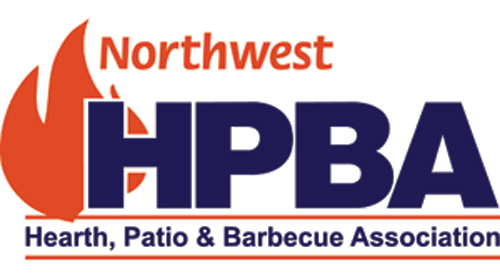TAKE ACTION THIS WEEK TO STOP ATTEMPTS TO BAN NATURAL GAS AND SAVE YOUR BUSINESS!
- Eliminate the ability for home builders to install natural gas cost-effectively in new homes, eliminating energy choice in the state and forcing natural gas fireplaces into extinction for new homes after July 1, 2023.
- Require heat pumps as the preferred source for space and water heating in all new homes, increasing the up-front cost of a new home by $8,350. Worse yet, the true cost to the homeowner over their 30-year mortgage will surpass $25,000.
- Require existing homes to upgrade their current HVAC systems to heat pumps if they increase the size of their original HVAC equipment. Estimates show that could cost homeowners a minimum of $23,000.
- Add another $9,200 to the price of every new home for compliant windows and air leakage requirements.
These extra costs will further hurt a homeowner’s ability to put supplemental and decorative hearth appliances into their new homes.
HELP NWHPBA BY MAKING YOUR VOICE HEARD!
The hearing is going to be held Friday, October 14, 2022 from 10 AM – 5 PM.
The location of the hearing is: Location: Room 1213, 1500 Jefferson St SE; Olympia, WA 98504
- SHOW SUPPORT FOR THE HEARTH INDUSTRY BY GOING IN PERSON TO THE HEARING WEARING CLOTHING/HATS/ETC WITH THE NAME OF YOUR BUSINESS ON IT.
- TESTIFY IN PERSON OR VIRTUALLY AT THE HEARING
- SUBMIT WRITTEN COMMENTS
- Online contact form
- Comment by email to [email protected]
- SIGN THE PETITION to support energy choice and stop unfunded mandates that drive up the cost of new homes and eliminate the ability for fireplaces and backup heating.
KEY HEARTH INDUSTRY TALKING POINTS FOR TESTIMONY AND WRITTEN COMMENTS
Insufficient, lacking or inaccurate cost data means this code is being put together without objective information regarding the impact on consumers, housing costs, and the businesses that build houses – including the hearth products industry.
Supplemental heating in Washington State homes is essential. According to a 2019 study from the Institute for Health Metrics and Evaluation, four times as many people were killed from cold temperatures than from warm temperatures. While the focus of the energy code is on electrification and cooling via heat pumps, the council is ignoring the need to ensure resilient heating systems in our homes. Climate change may bring warmer temperatures in the summer, but the reality in the Northwest could still be significant fall and winter storms that knock out power to homes during cold months.
Pressure on the electric grid, along with the demand from other states such as California for increased power, will put homes in Washington state in jeopardy of power outages – not when it is warm, but when it is colder. Residents in Washington utilize more electricity during cold weather events. Our building code should not disincentivize clean burning backup options such as natural gas fireplaces.
The proposed energy code currently disincentivizes natural gas through the credit options table and the need for builders to achieve a certain number of energy credits. This will result in fewer houses being built with ANY ability to have natural gas run to the home. This will not only reduce the number of gas fireplaces installed in homes originally, it will also reduce the choices for residents who want to add a supplemental heat option after their house is built – an action that is a reality after power outages occur.
- If no gas line is run to the neighborhood, it would be prohibitively expensive to put in a gas-heating fireplace after the house is built.
- Options if there is no natural gas available include:
- Propane – many neighborhoods would not allow this option because of the closeness of the houses. Setbacks would prohibit this option for many homeowners.
- Woodstoves or wood pellet stoves – while this would be a viable option for many homeowners, it could be cost prohibitive for low-income consumers because newer houses require significantly more expensive venting for these stoves – venting that can add $3000-$4000 to the cost of the stove. In addition, there are areas around Washington state at risk of being EPA non-attainment areas – such as Yakima – where woodstoves may be a far less viable option than natural gas heating appliances because of the impact on overall air quality. In addition, many neighborhoods may not have easy access to fuel during the times they need to use wood products to heat their homes.
- The Washington State Energy Code should be revised to ensure the ability for homeowners to put back up natural gas heating into their homes in the event of a power outage. Gas fireplaces, gas inserts and freestanding gas stoves (not cooking appliances) remain a viable option for this because
- The fuel is readily accessible when the heating is needed.
- They work effectively during power outages.
- These fireplaces are cleaner burning options for neighborhoods in urban and suburban areas.
- They are sealed combustion, direct vented appliances so they are safe for homeowners and families.During emergencies, the first things our citizens hear is to “stay at home” or to “shelter in place.” This happened with the recent pandemic. It happens following significant windstorms, and it is often repeated during a winter snow or ice storm. The ability for Washington residents to have homes that can be safe and warm during these events is important, not only for the families who are reluctant to leave their home vulnerable, but also so local agencies and shelters do not become overstressed.

